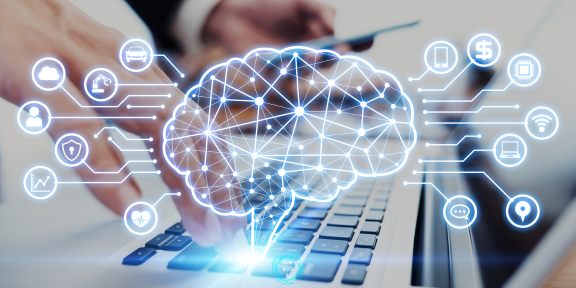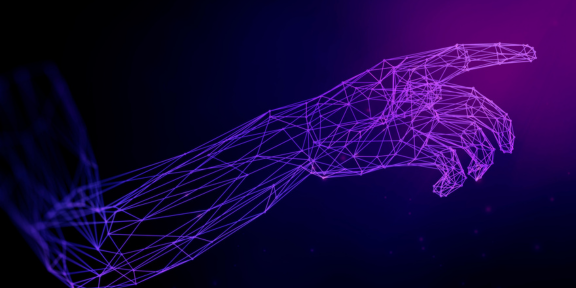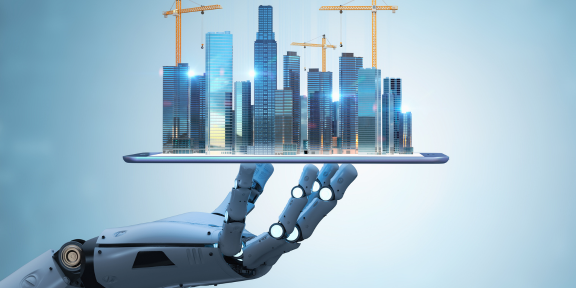The Definition of AI Demystified

What really is the definition of AI? Artificial Intelligence (AI) is no longer confined to the realms of science fiction. It has become an integral part of our daily lives, impacting various industries and shaping the future of technology. In this blog post, we will explore the definition of Artificial Intelligence, its underlying principles, and the significant impact it has on our world.
What is the Definition of AI?
Artificial Intelligence refers to the development of computer systems that possess the ability to perform tasks requiring human intelligence. It involves the creation of intelligent machines that can perceive their environment, reason, learn from experience, and make decisions to achieve specific goals. AI aims to replicate human cognitive processes, enabling machines to understand, analyze, and respond to complex situations.

Key Components of AI:
To better understand AI, let’s explore its key components:
1. Machine Learning:
Machine Learning is a subset of AI that empowers computers to learn from data without being explicitly programmed. It involves developing algorithms and models that enable machines to analyze vast amounts of data, recognize patterns, and make predictions or decisions based on the insights gained. Machine Learning plays a crucial role in various AI applications, such as image recognition, natural language processing, and predictive analytics.
2. Natural Language Processing (NLP):
Natural Language Processing focuses on enabling computers to understand and interact with human language. It involves tasks like speech recognition, language understanding, and language generation. NLP allows machines to process and comprehend text or speech, enabling applications like virtual assistants, chatbots, and language translation.
3. Computer Vision:
Computer Vision is the field of AI that enables machines to perceive and interpret visual information from images or videos. It involves extracting meaningful data from visual inputs, recognizing objects, faces, and gestures, and understanding the context of the visual content. Computer Vision finds applications in areas such as autonomous vehicles, facial recognition, and image analysis.
4. Robotics:
Robotics combines AI with mechanical engineering to design and develop intelligent machines called robots. These robots can perform physical tasks with varying degrees of autonomy. AI-powered robots have the potential to revolutionize industries like manufacturing, healthcare, and agriculture by automating repetitive tasks, enhancing precision, and enabling human-robot collaboration.

The Significance of AI
Artificial Intelligence has far-reaching implications for various sectors. Thus the definition of AI may be slightly different based on what is can do.
1. Automation and Efficiency:
AI enables automation of repetitive tasks, reducing human effort and increasing efficiency. Industries can leverage AI to streamline operations, optimize workflows, and improve productivity. Automated systems can handle data processing, customer service, and complex decision-making, freeing up human resources for more creative and strategic endeavors.
2. Data Analysis and Insights:
With the ability to analyze vast amounts of data in real-time, AI empowers businesses to gain valuable insights. AI algorithms can detect patterns, extract meaningful information, and provide data-driven recommendations. This enables organizations to make informed decisions, predict trends, and uncover hidden opportunities.
3. Enhanced User Experience:
AI enables personalized experiences by understanding user preferences, behavior, and context. Applications like recommendation systems, personalized marketing campaigns, and virtual assistants create tailored interactions, improving customer satisfaction and engagement.
4. Advancements in Healthcare:
AI has the potential to revolutionize healthcare by assisting in disease diagnosis, drug discovery, and personalized treatments. Machine Learning algorithms can analyze patient data, medical records, and research findings to predict diseases, recommend treatments, and accelerate medical research.

Wrap Up of the Definition of AI
Artificial Intelligence represents a paradigm shift in technology, enabling machines to mimic human intelligence and perform complex tasks. With its core components of Machine Learning, Natural Language Processing, Computer Vision, and Robotics, AI has vast implications for automation, data analysis, user experience, and healthcare. By understanding the definition and significance of the definition of AI, we can embrace its transformative power and explore innovative possibilities and tools in a rapidly evolving world.
